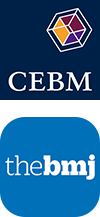Pearls of wisdom for future leaders
By Peter Gill
Recently I had the opportunity to attend an annual research competition which brought together paediatric trainees from across Canada. It was an inspirational event for several reasons: 1) the quality and scope of research being conducted by trainees is impressive; 2) it provided a break from clinical responsibilities to reflect; and 3) it provided an opportunity to network with leaders in evidence-based medicine, including Dr. Terry Klassen, founder of the Cochrane Child Health Field.
The event started with a keynote speech by Dr. Stephen Freedman, a paediatric emergency physician who transformed the management of gastroenteritis in children by leading several large multi-centre RCTs published in NEJM and JAMA. Learning about the career path of successful researchers is invaluable. As a junior trainee, it often seems that well-known academics had a simple, linear path to success. The reality could not be farther from the truth. I wanted to summarize a few simple (and perhaps self-evident) pearls of wisdom that were passed on to me at the event.
- Be curious: don’t be afraid to ask why
Meaningful research provides answers to everyday clinical questions (e.g. why should we prescribe antibiotics for 10 days instead of 5?). As a trainee, time is a luxury, and we can fall into a trap of doing rather than thinking. Yet, it is imperative to remain sceptical and curious (e.g. how will ordering this blood test change management?). Be forewarned, the answer is often not reassuring (“I always do it this way” or “it’s hospital policy”). By asking questions (and searching for answers), research gaps will appear. Not only will this help guide your research, it helps you provide evidence-based care to your patients.
- Take risks: get out of your comfort zone
It is tempting to remain at the same institution: it is comfortable and familiar. However, by leaving your ‘safe’ zone for an elective, fellowship or exchange, you will see variation in clinical practice. I have been to countless talks from academics who cite observing variation as a trigger for a research career. Dr. Freedman, for example, completed his paediatric emergency fellowship in Chicago where children were routinely managed with promethazine unlike dimenhydrinate in Toronto: the rest is history. But, such opportunities rarely fall on one’s doorstep: actively seek them out, apply broadly, keep an open mind and be prepared to learn. Different can be good, and better.
- Be creative: think ‘outside the box’
Some emergency departments rehydrate children with IV fluids rapidly over 20-30 minutes while others infuse the same volume of fluid over 60 minutes. Which is better? Dr. Freedman wanted to conduct a double-blind RCT to compare the two methods of IV rehydration but did not know how to keep clinicians blinded. What did he do? He went to his backyard, found some wood, and built a box to cover the IV pump. While the first version was crude, eventually the bioengineering department designed a sound-proof box and the trial was a success (i.e. faster is not better). If you have an interesting idea, don’t fret if it seems impossible. Be creative, talk to others – think ‘outside the box’.
- Be persistent: more is learnt from failure than success
Recently, a Princeton professor posted a CV of failures which outlined his rejections. Failure is part-in-parcel with any career, particularly one in academia. If you fail, try again: submit your manuscript to another journal or apply for another job. Learn from failure – ask for feedback but remain objective, and do not take it personal. Failure is part of the process, and you often learn more from failure than from success.
- Break down silos: think outside your specialty
Everyday care is delivered by multiple healthcare professionals, including GPs, emergency physicians, consultants, nurses, and allied health (e.g. physiotherapist). Yet, research is often confined to one specialty or discipline. This traditional model of research is antiquated and artificial. Similar to thinking outside the box, think outside your speciality and work with other clinicians and research groups, especially patients.
- Network, network, network: make yourself known
Relationships form the bedrock of a successful research career: multi-centre studies require collaborators at each site while grants and manuscripts require peer review. Go to conferences and events where you will meet colleagues in your area of interest. Get to know people in the field: go for (non) alcoholic drinks, socialize and become friends. Offer to review manuscripts, grants and papers. Peer review relies on not just taking, but giving. Good reviews get recognized by authors who may contact you to say thank you, or you may get asked to write an editorial by the journal.
- Have fun
Research is hard work, and is a long-term game. If you are going to be putting in the hours, it should be for a topic you believe in and with people you enjoy working with.
Lastly, mentorship is critical. Kamal Mahtani covers this topic brilliantly in his blog post Evidence based mentoring for “aspiring academics”.
There is so much left to do in medicine. Students, trainees and junior researchers will play a key role in tackling the important questions. While it is important that these individuals are well-supported, it is equally important for future leaders to step forward. The Roman philosopher Seneca sums it up nicely: “Luck is what happens when preparation meets opportunity.”
—
Peter J Gill is a paediatric resident at The Hospital for Sick Children, University of Toronto and an Honorary fellow at the Centre for Evidence-Based Medicine, University of Oxford. He is a member of the Evidence Live 2016 steering committee which this year includes a Future Leaders theme.
You can follow him on Twitter at @peterjgill
Competing interests: I have read and understood BMJ policy on competing interests. I have no other competing interests to declare.
Disclaimer: The views expressed are those of the author and not necessarily of any of the institutions or organisations mentioned in the article.



